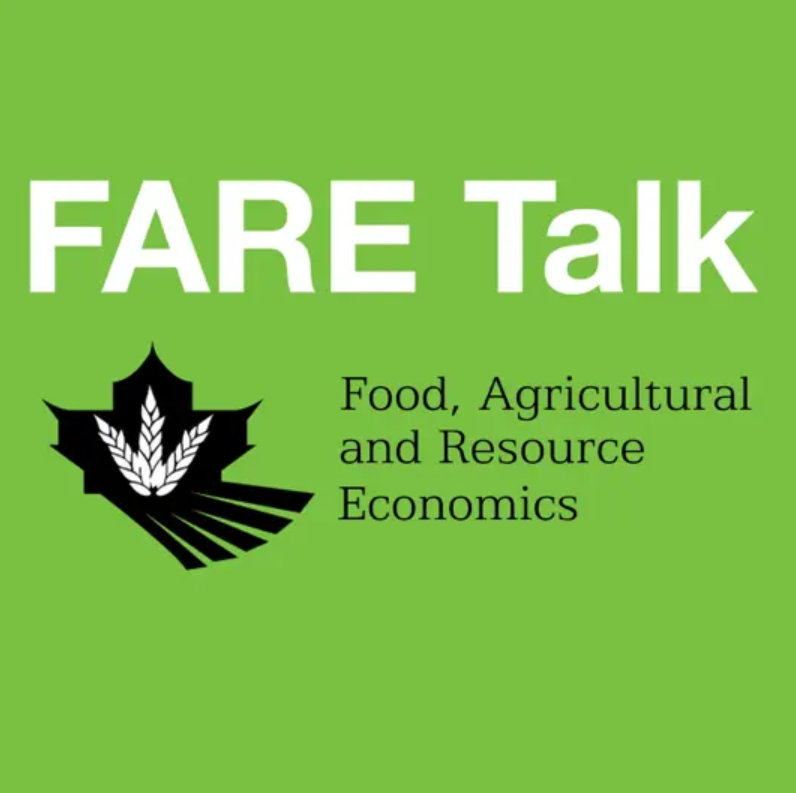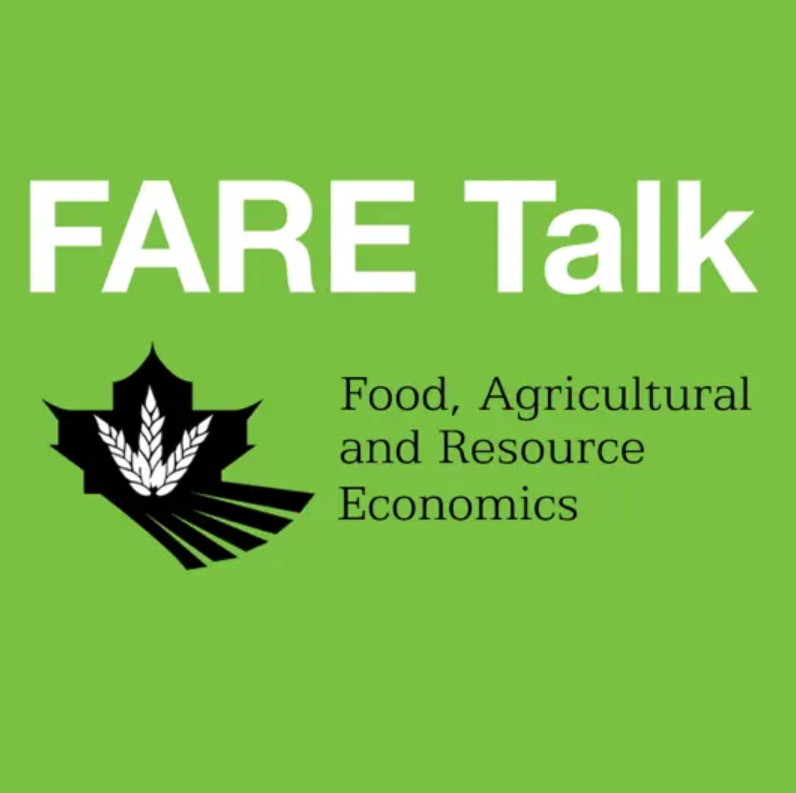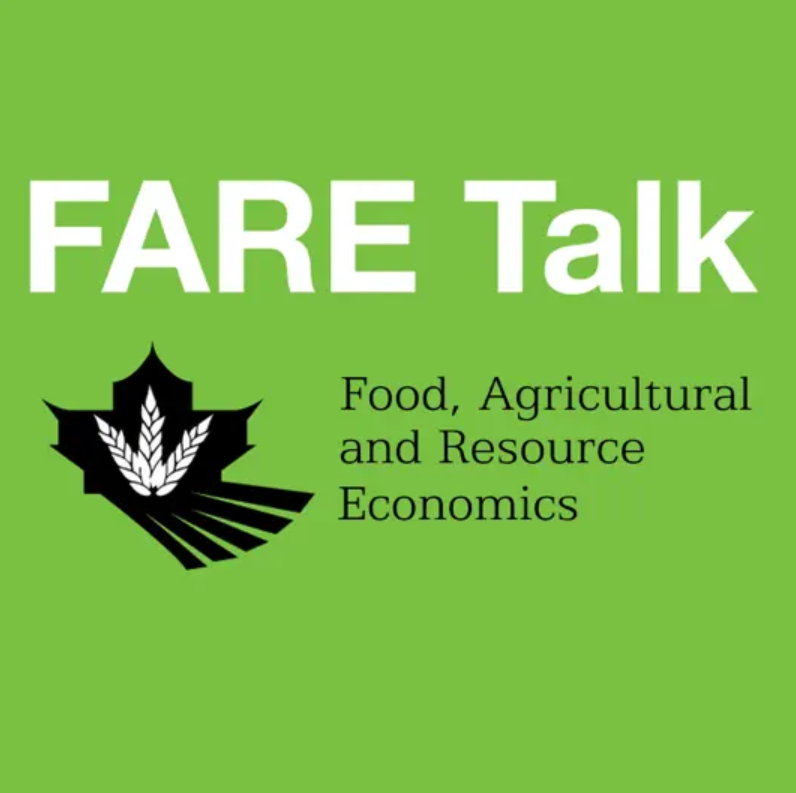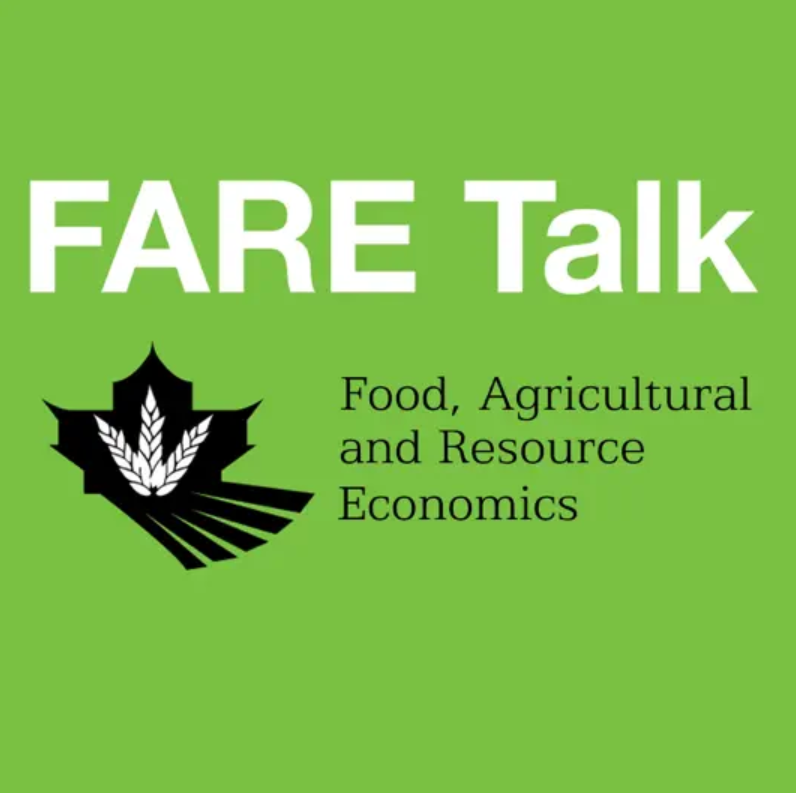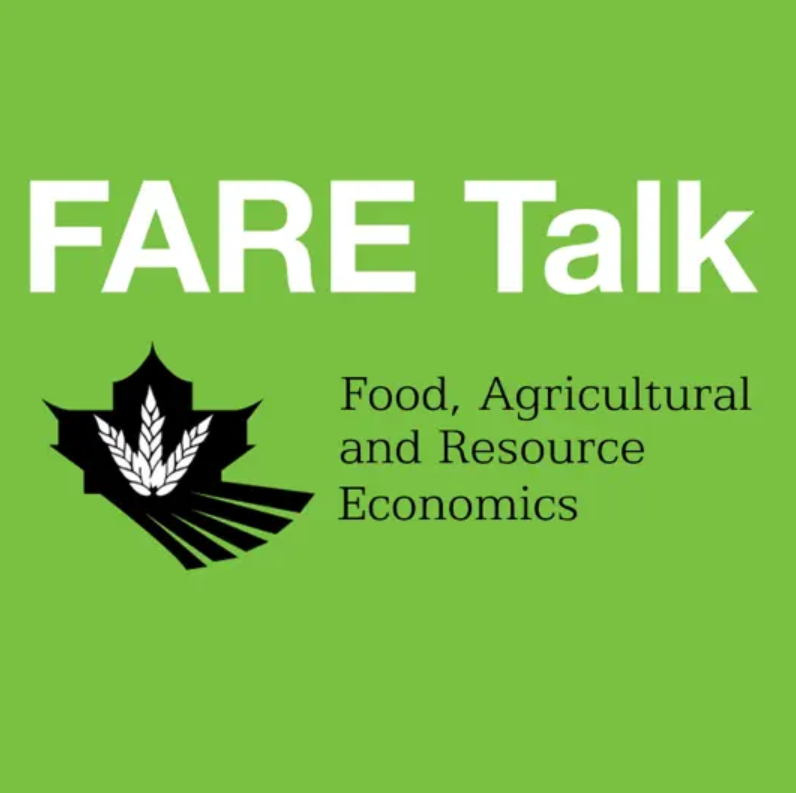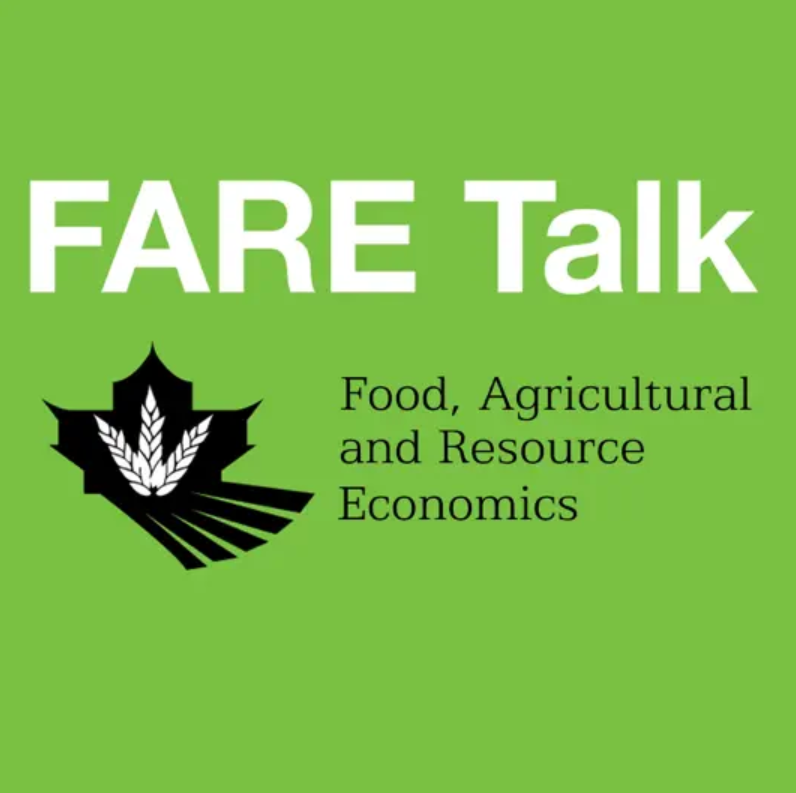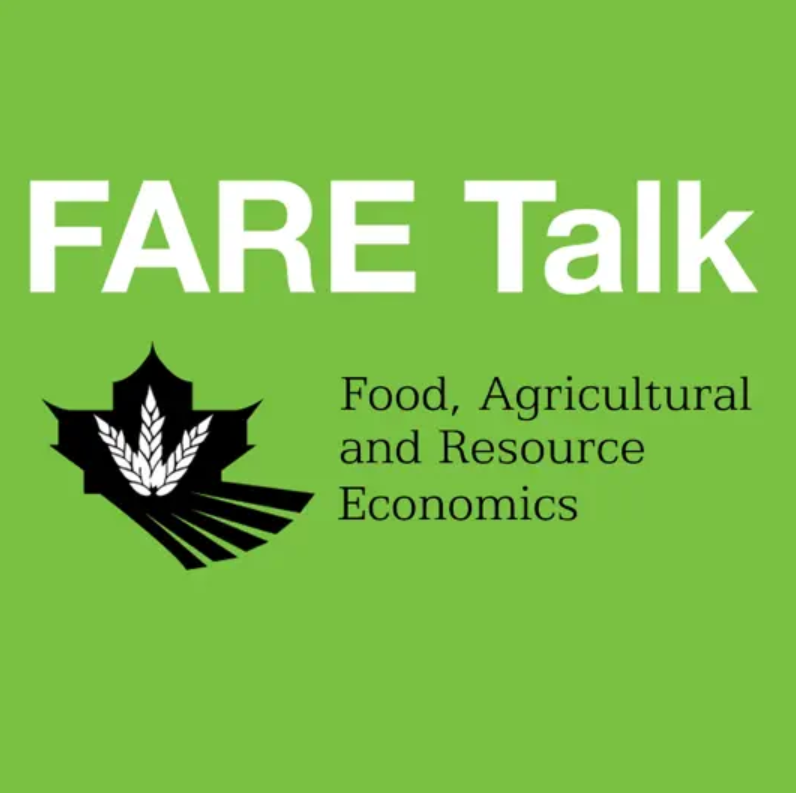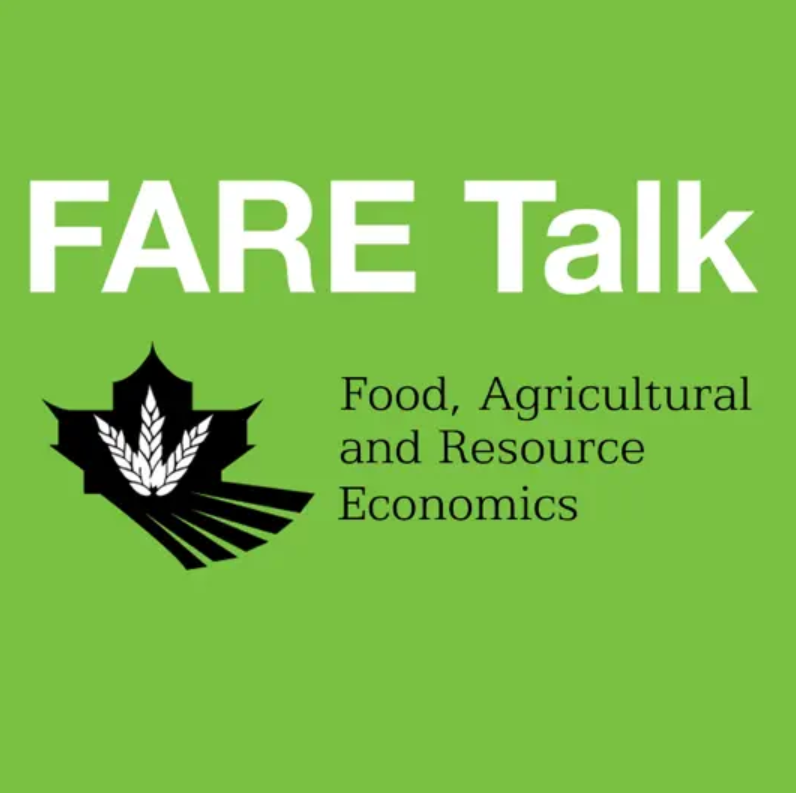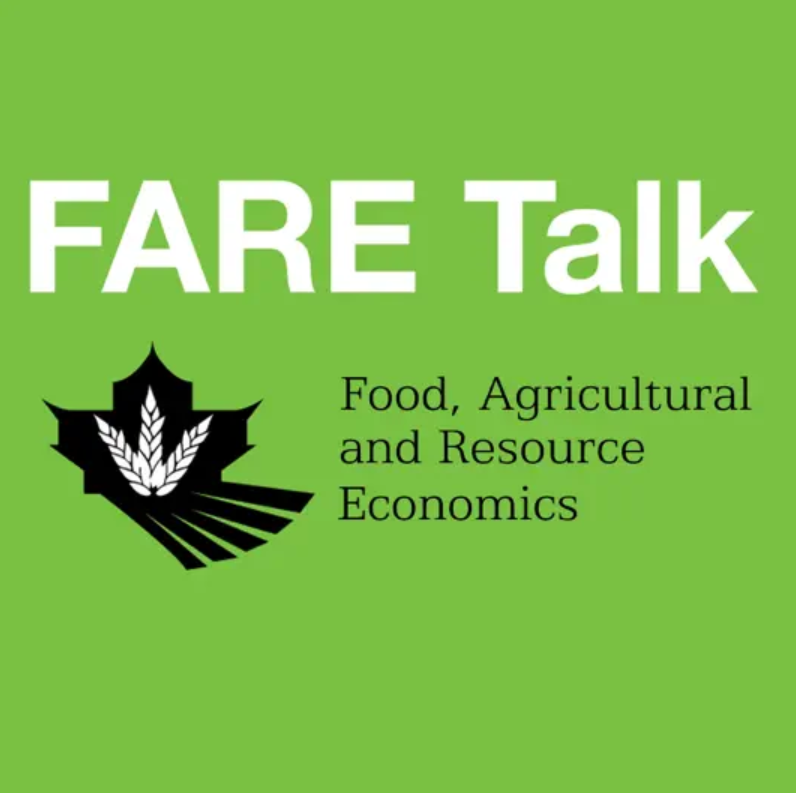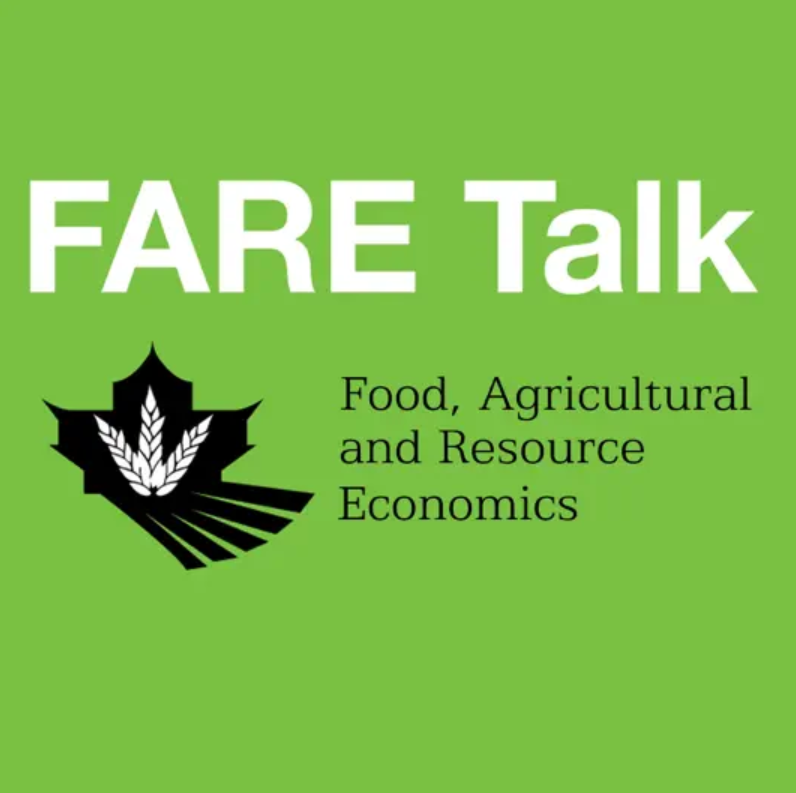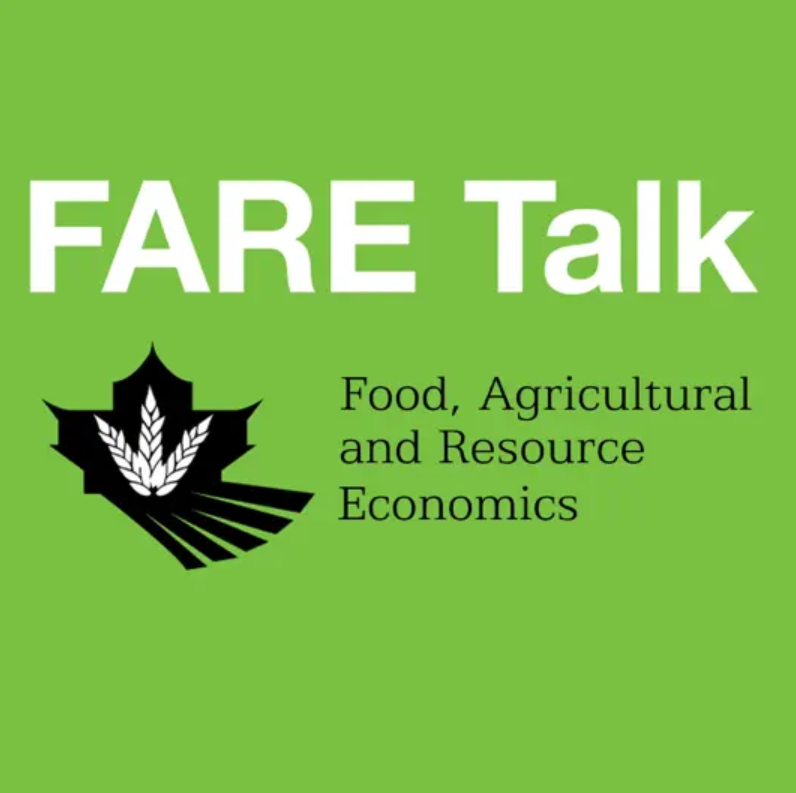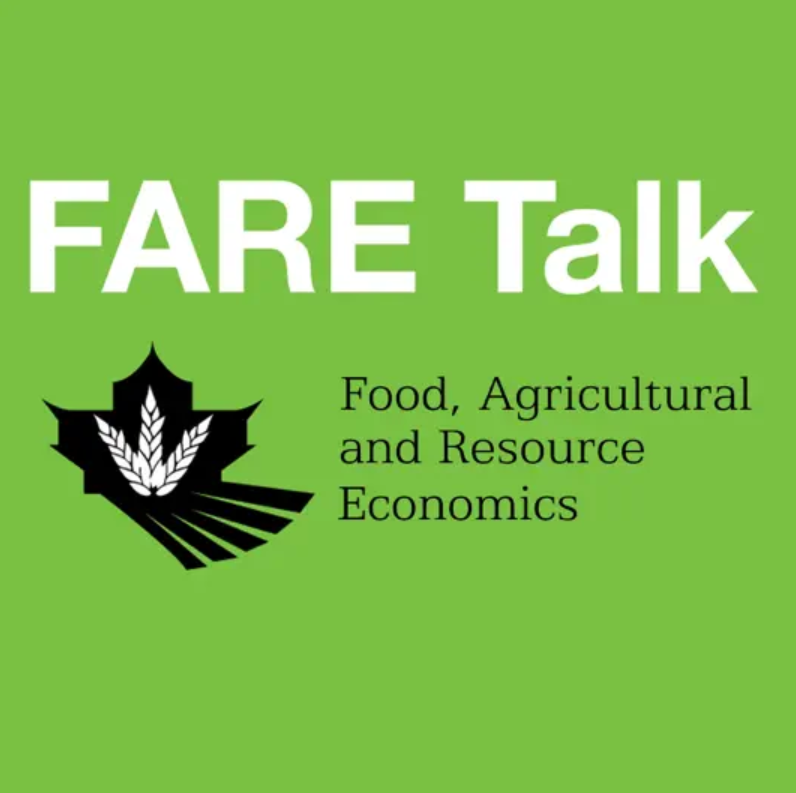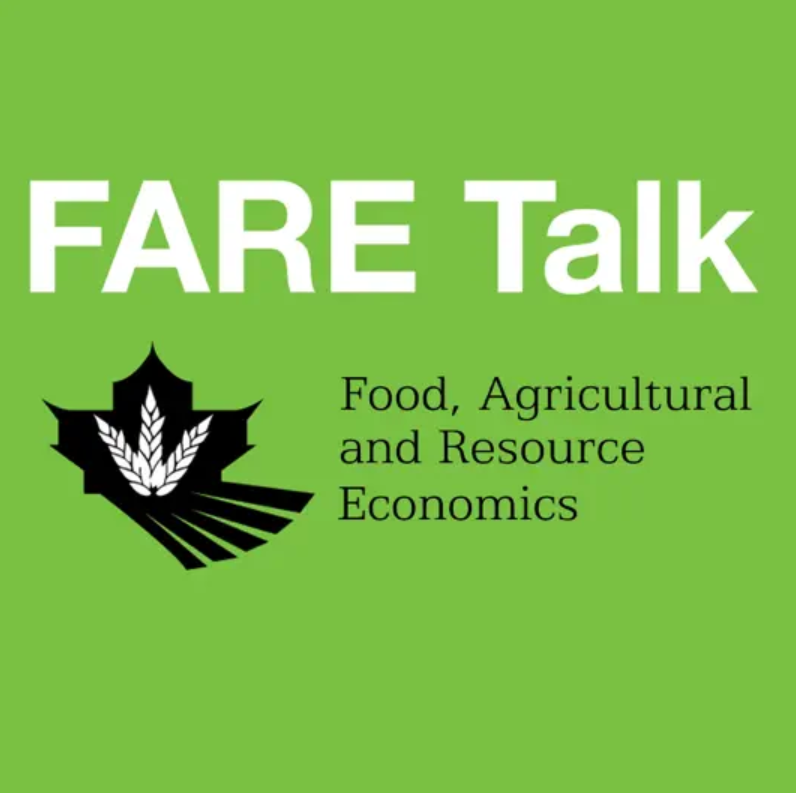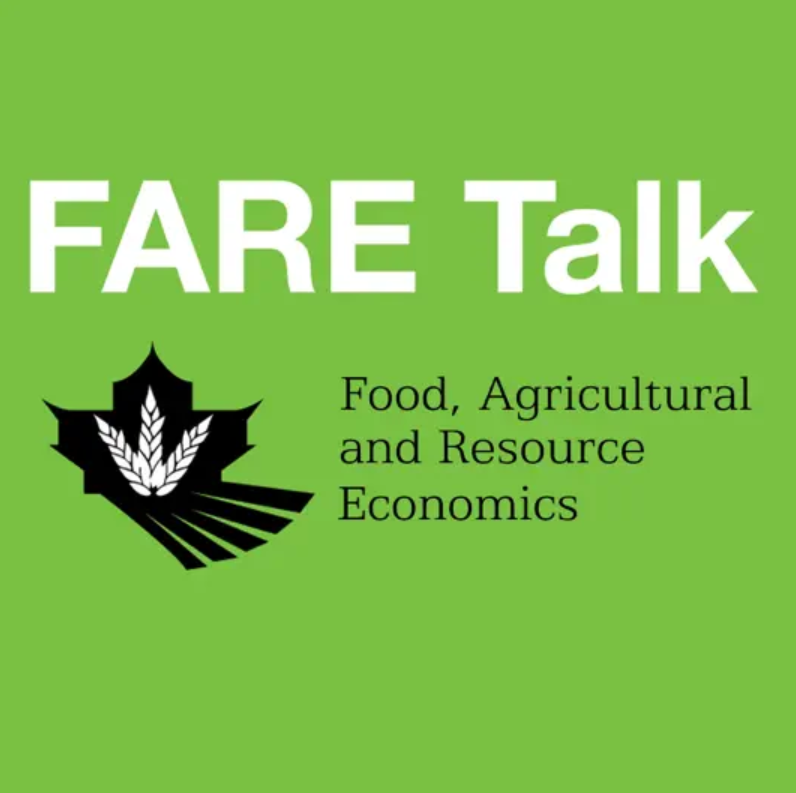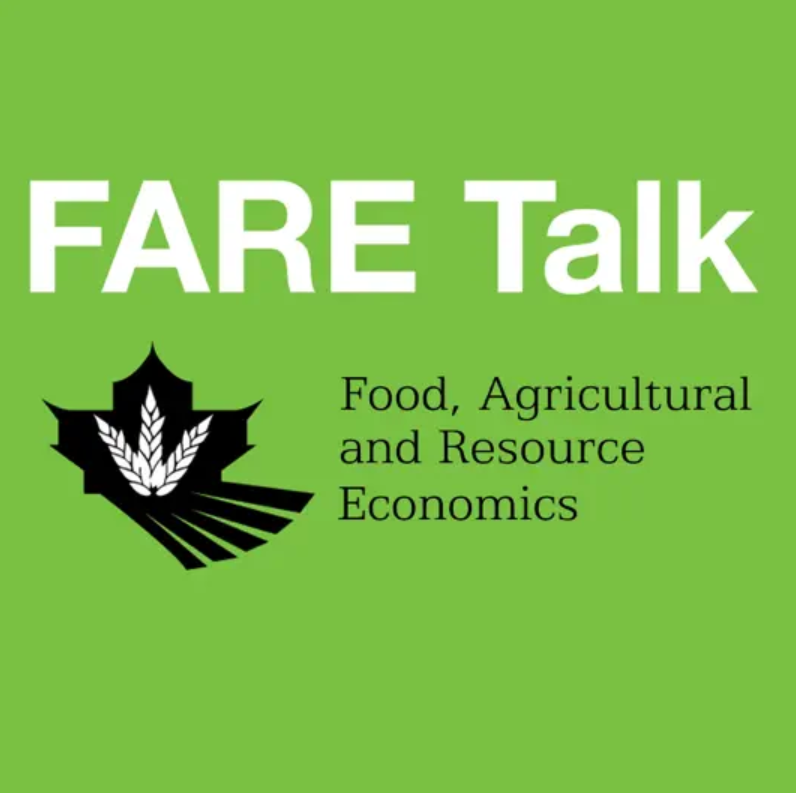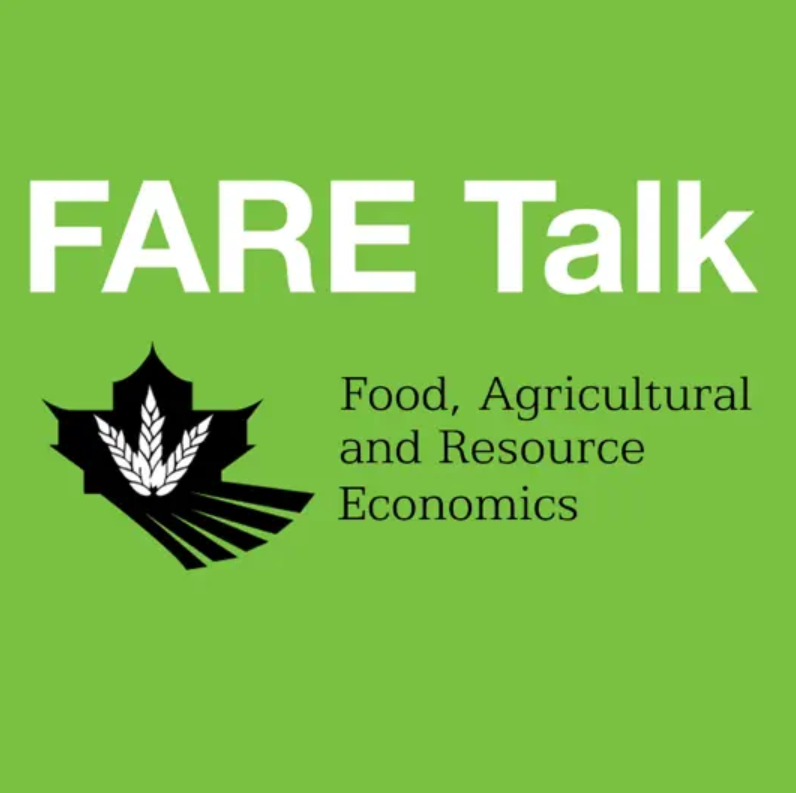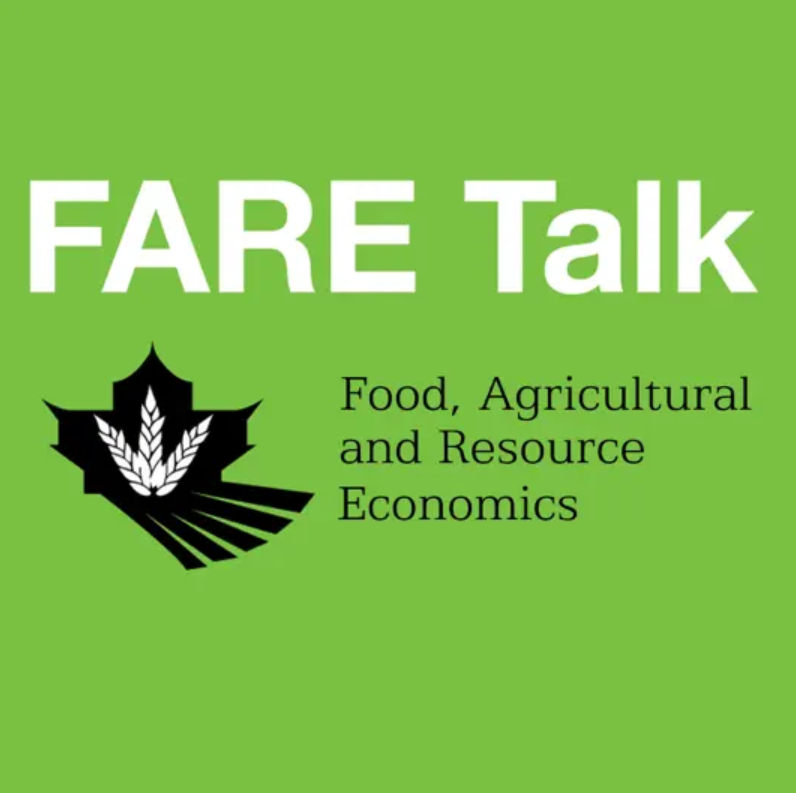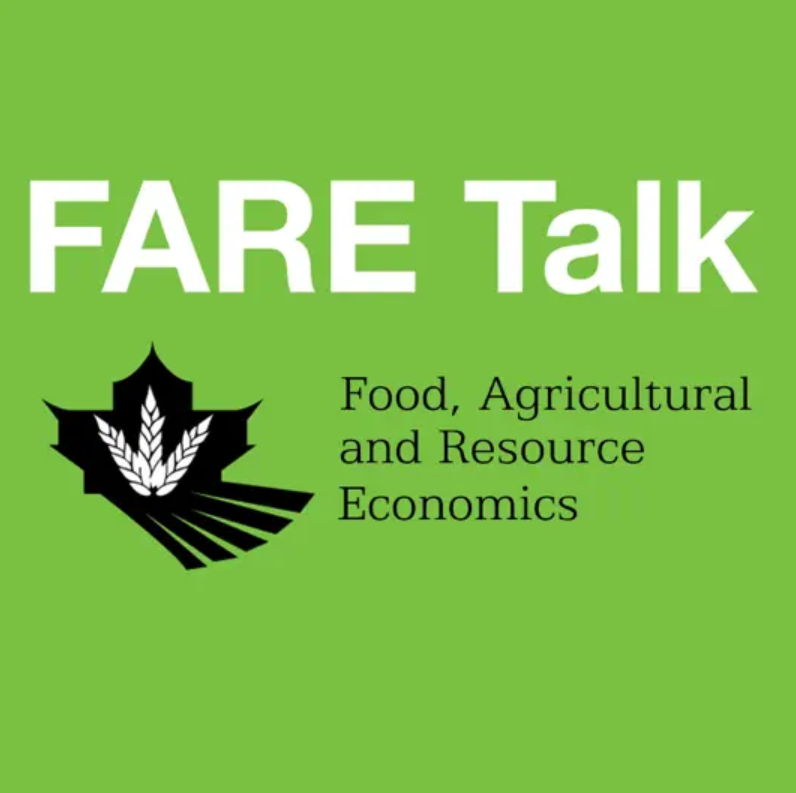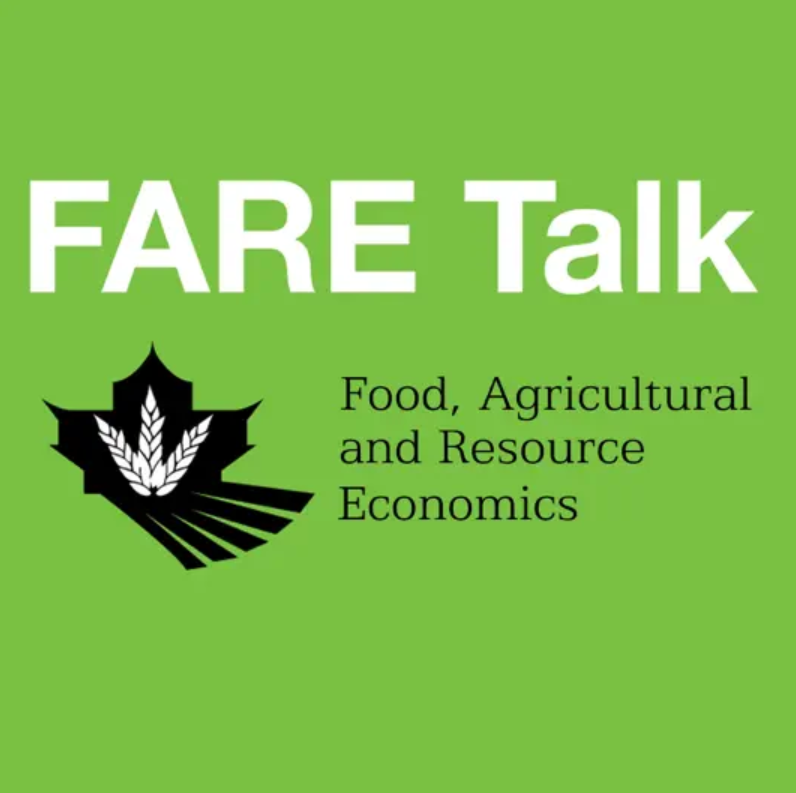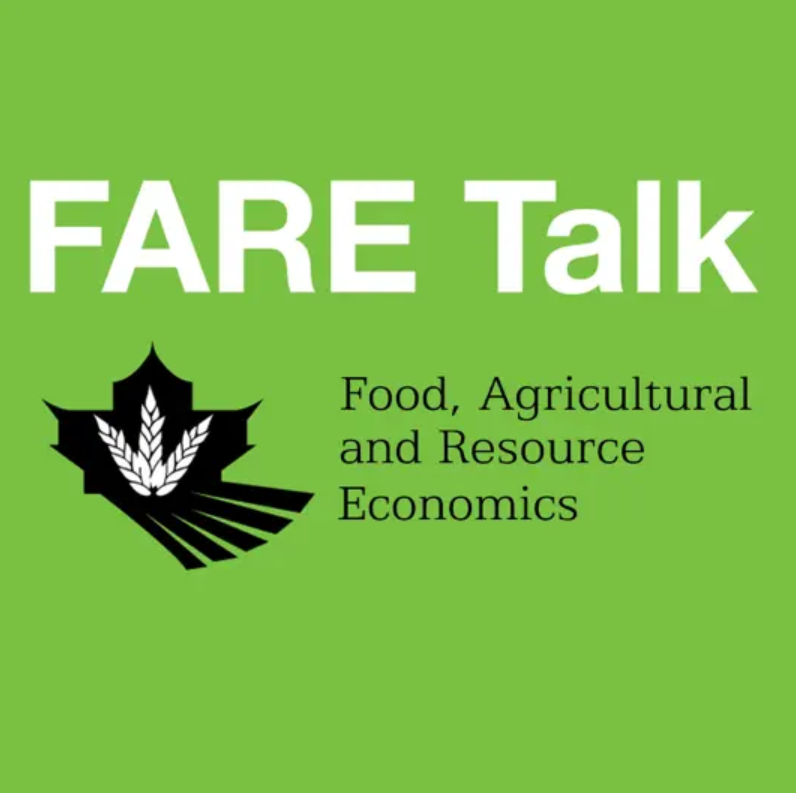First Nations Lands and Economies - September 13th, 2012
Description
In this podcast Chief Robert Louie and I discuss the management and control of First Nations Land. Chief Louie is the Chief of the Westbank First Nation. He is the chairman of the First Nations Lands Advisory Board since 1989 and a member of the Order of Canada.
Transcript
Brady Deaton Jr.: Welcome to FARE-Talk where we set out to provide enduring discussions on contemporary topics relevant to our economy with particular emphasis on food, agriculture, and the environment. My name is Brady Deaton, Jr. of the Department of Food, Agriculture, and Resource Economics at the University of Guelph. I'll be your host.
Today Chief Robert Louie and I will be discussing the management and control of First Nation's land with particular focus on the Framework Agreement on First Nations Land Management. Chief Louis is the Chief of the Westbank First Nation. He is the Chairman of First Nations Land Advisory Board since 1989 and a member of the Order of Canada.
Welcome to FARE-Talk, Chief Louie.
Chief Louie: Thank you very much Brady. It's a pleasure to be here.
Brady Deaton Jr: I want to begin by mentioning something that's on the Land Advisory's Board website and have you kind of discuss it; and there's a statement there that's very powerful. It says, "For the first time in history of First Nations, we'll gain a window of opportunity to have the power as a Nation to manage its reserves, lands, and resources, and eliminate the bureaucracy of Justice and Indian Affairs." Talk to me a little bit about that.
Chief Louie: Well, it's extremely important for First Nations across this country that First Nations be recognized with inherited right to manage their own lands and resources; and for us this land management process and the implementation of land codes does exactly that. It recognizes the jurisdiction. It recognizes that First Nations are the lawmakers on their own lands, that they have the power to make laws over their lands and their resources; and that's fundamentally important. And it is the first time in the history of Canada, that such an accomplishment has occurred. First Nations were historically self-governing before the Europeans came to Canada, and now with Land Codes and with the Frame Agreement initiative, it recognizes that First Nations again have the jurisdiction to look after their lands and their resources.
Brady Deaton Jr: I think there's two big terms that will probably be used a little bit interchangeably, but I wouldn't mind if you could just unpack them a little bit. There's the Framework Agreement, and there's the First Nation Land Management Act. The Framework Agreement, of course, come into being in 1996. And the Land Management Act is in 1999, I believe. Talk to me a little bit about the difference between those, and how they came into being.
Chief Louie: The Frame Agreement is a government to government agreement that was negotiated by the First Nations and with Canada. And that Frame Agreement, back in the 1996 timeframe, at the time of signing, sets for principles that recognizes First Nations to have the inherited right to do such things, as manage their lands and resources. It talks about principles to protect lands, so reserve lands cannot be sold. It recognizes that third party interests are going to be protected. Principles of that nature. It's a fundamental document that set for strategy and set for the process, so that government could eventually pass its legislation, and that legislation was passed in 1999, the First Nation Management Act.
By Canada passing that legislation, it ratify the Frame Agreement. What's unique about the Frame Agreement and the First Nation Management Act is very simple. It says and it recognizes that unilateral changes cannot be made without the consent of the other party. That's fundamentally important from the First Nation perspective, specially when we're looking at how laws are developed and the negotiations that took place to put forces [inaudible 00:03:54 ]. That's very, very important and it's very unique in Canada.
Brady Deaton Jr: The process leading up to the Framework Agreement it's quite interesting. It's something that emphasized discussions of the First Nations Land Management Act. The Westbank First Nation was one of the original signatories, what was that process?
Chief Louie: In the early 1990's, and even going back to the late 1980's, there was a movement by First Nations at ... We had to see the recognition of the inherited right of First Nations recognized. We had the constitution that was passed prior to that. It's spoke of, in section 25 and section 35 in that constitution, spoke of the inherited right of First Nations, but it wasn't implemented. This was a very serious contention by First Nations.
When government look at, and it was about time of the changing government, it was the election process in the early 1990's that led to the liberal government, who wanted to come into power. They said to First Nations in their background, in the election process, saying that we would want to have First Nations recognized with certain inherited rights. We capitalized on that. Our process was "Let's do that", to do that we needed to get ourselves out of the Indian Act.
We worked with the government when it became government and we negotiated the Frame Agreement. That really was the starting point to say, "Yes, there is a process, and if the government says they would support it, then, let's see the reality of it." The reality of it was the Frame Agreement and the eventual passage of the First Nations Land Management Act legislation. Of course, since then we have been [inaudible 00:06:09 ] First Nations who have passed land codes, who were now self-governing to the extent that they can now manage their lands and their resources.
Brady Deaton Jr: How many First Nations have opted in to the Framework?
Chief Louie: Right now we have 37 First Nations to actually become operational, that have passed land codes and are fully operational. We have 25 that are in the developmental phase today. We have a total of about 83 First Nations on the waiting list to become involved. When we add up all those figures, it boils down to about one in six First Nations in Canada are either involved or want to be involved in the Land Management.
Brady Deaton Jr: What are the steps if a First Nation wants to basically enter into the Framework Agreement? What are the steps by which that would be done? I wanna talk in a minute about the Indian Act, because I think that's important. If you wanna to move out of the Indian Act into the Framework Agreement what generally are the steps that First Nations would undertake?
Chief Louie: The First Nation that is interested in this process first of it has to have the genuine interest. And that interest would normally, and usually comes from the council of the First Nation. It has interest, it's heard of the Land Management initiative through one process, step, or another. It says and it feels, "Yes, this is something that could work for our community", that First Nation would then look at passing a bank council resolution to set the process, to say, "We have interest, we'd like to become involved, we have interest here, accept our resolution saying that we have that interest, it's signed that we wish to proceed."
Now, in the recent years, last couple of years, government of Canada has said, "well, that's fine, but now we have to go through a process, you're going to have to fill out some application forms and let's take a look at all of the varies things that have to now be considered. Are you in third part management for example, do you have economic development needs, do you have any environmental issues or matters of serious concern, are you [inaudible 00:08:30 ] Canada?" Questions of that nature.
Then Canada, once it has that application, will make a decision. It has the control, if you to will, to accept or reject the First Nation now coming into the process. If it accepts that First Nation, then that First Nation is recognized "Yes, you will now have an opportunity to participate when the funds and when time permits."
Recently, in the Spring of 2000, the minister of Indian Affairs accepted to have that [inaudible 00:09:07 ] of First nations, another group, 18 new First Nations, from coast to coast, were then agreed upon to enter into the land measurement process. That opened the doors for those 18 First Nations. They're now in the developmental phase of their land code development.
We still have many other First Nations for waiting. You can appreciate that cost money to have First Nations in developmental process. Canada has to set aside those [inaudible 00:09:38 ] and has to budget it. Right now, we're under certain budget constraints. Even though that we have KPMG studies, and studies of that nature, that suggest and support the fact that if a First Nation becomes operational, we can show and demonstrate through past history and review of the economical findings that that First Nation is going to bring a return to the investment into that First Nation going into developmental phase. It's been estimated that at least 10 times the return on that investment. By Canada investing into the First Nations to support them to become operational. Once it becomes operational, 10 times the return of the investment. And those investment returns grow every year.
Brady Deaton Jr.: Do the First Nations vote on whether they want to accept the new developed land codes

